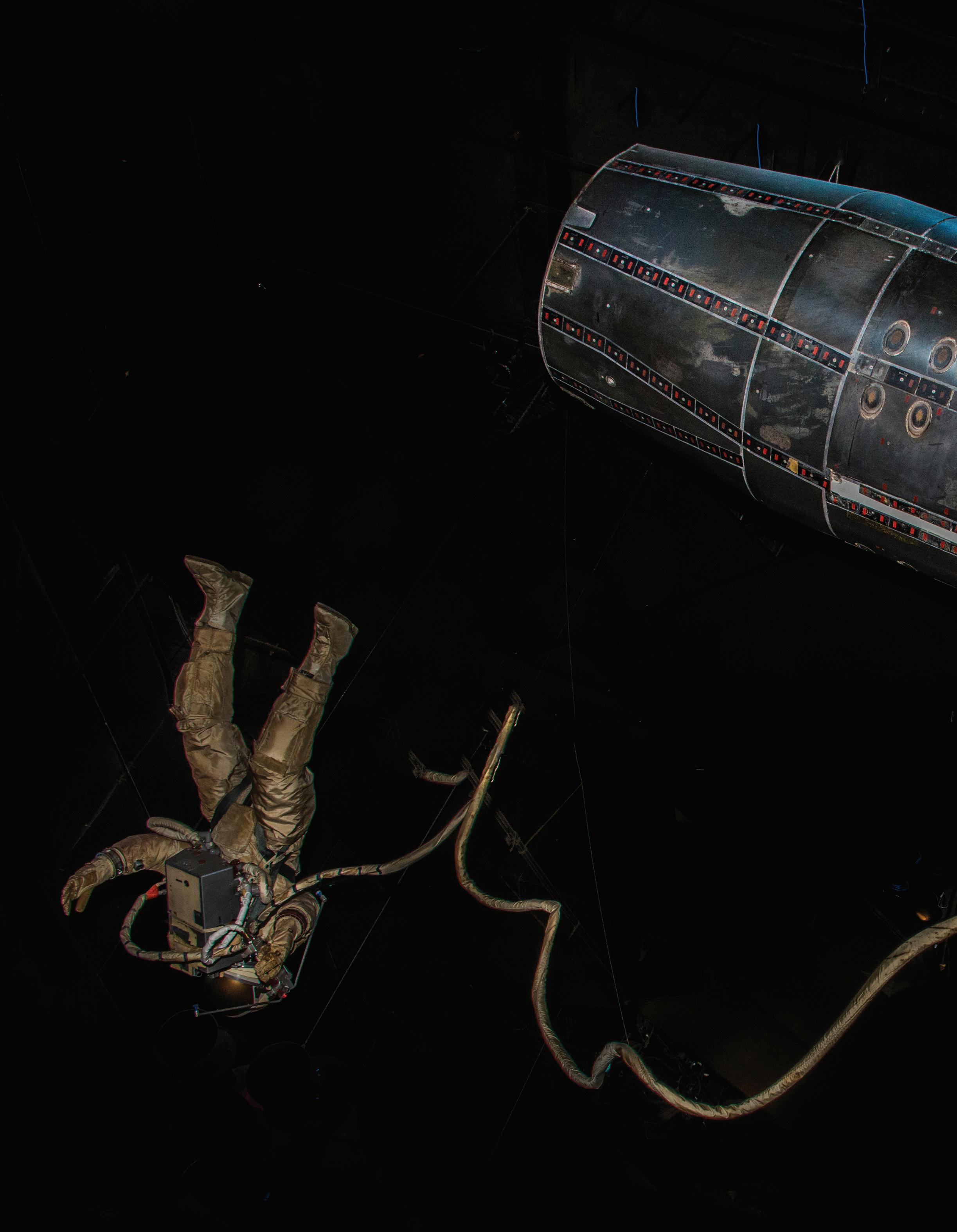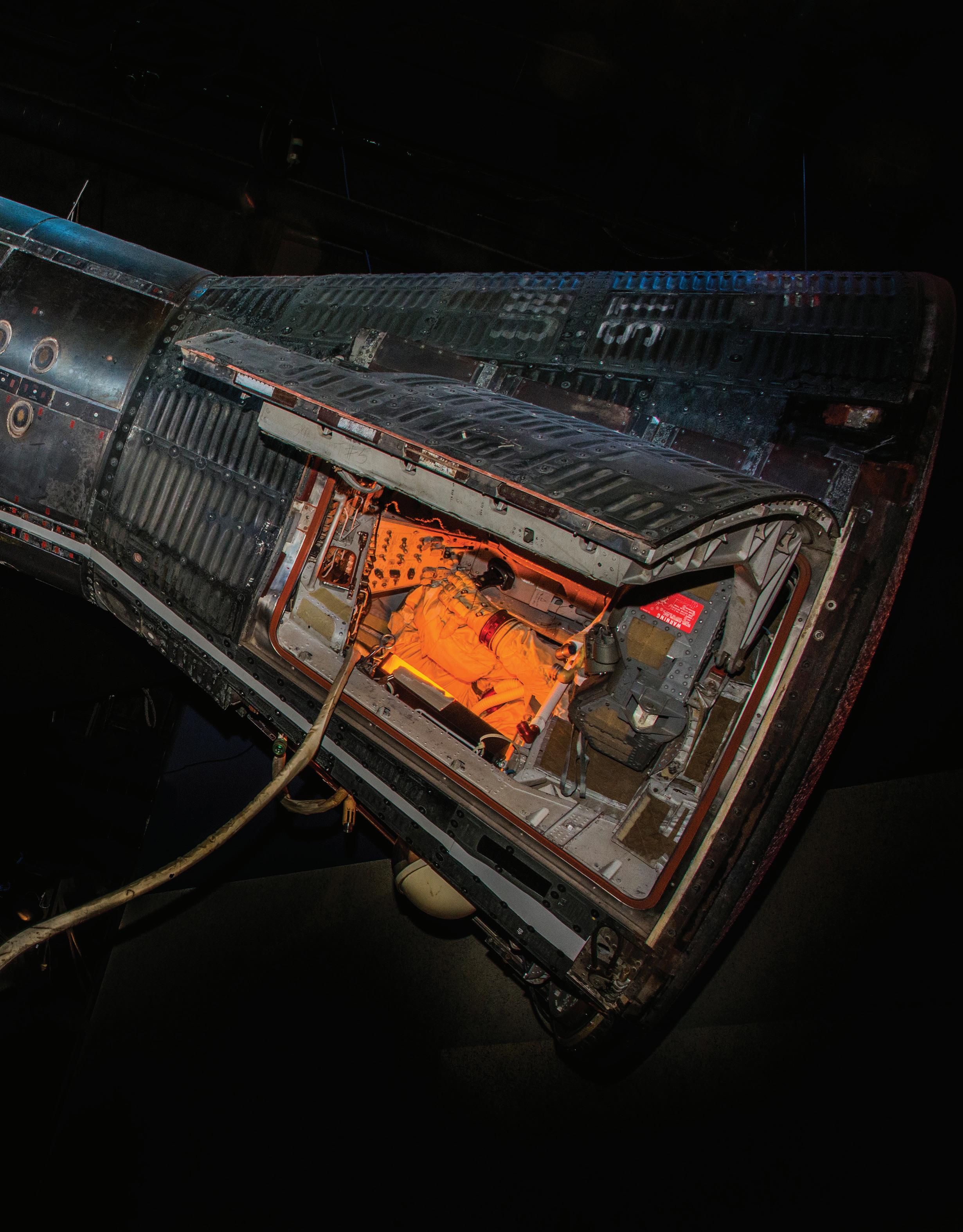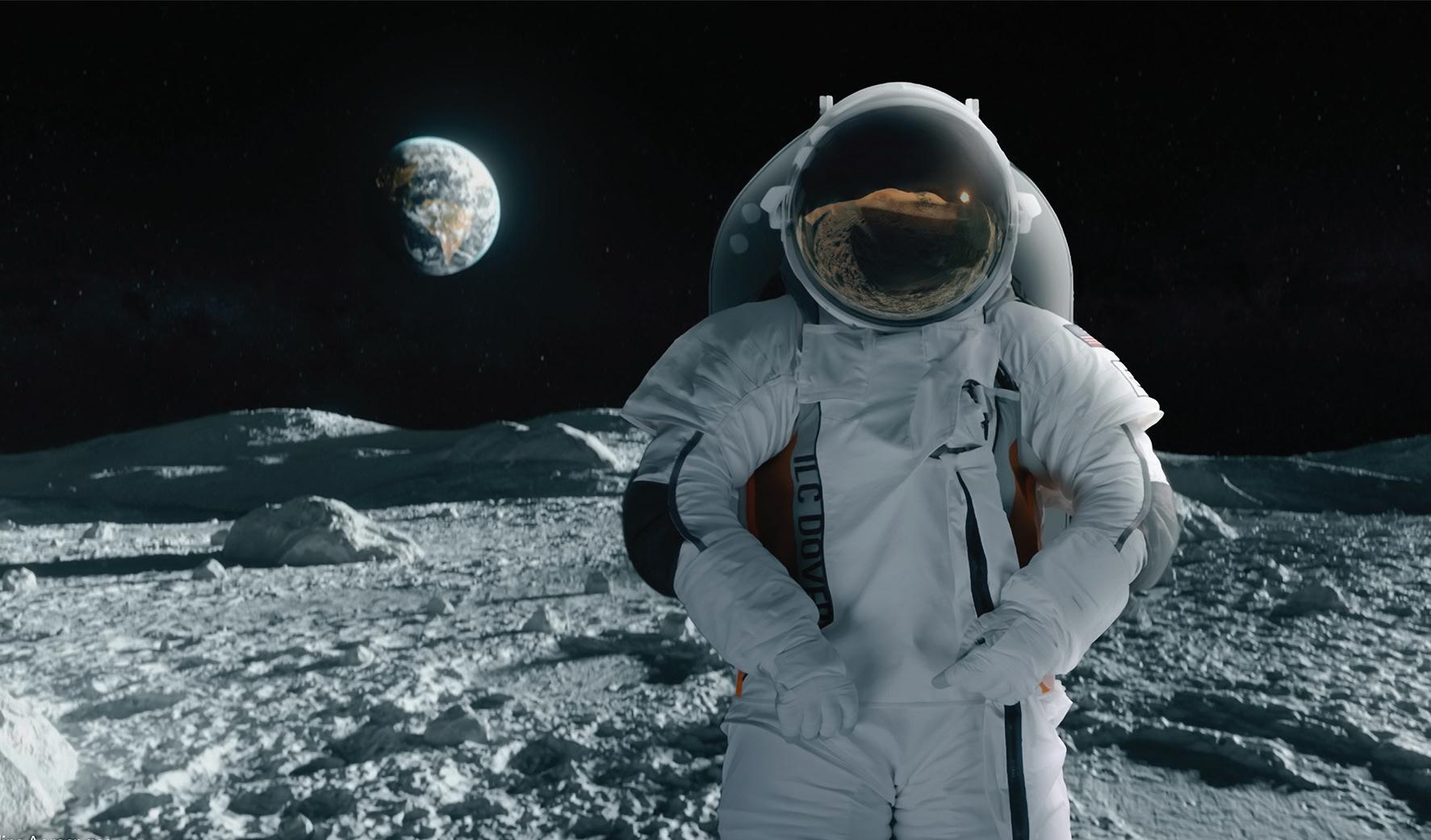
3 minute read
Aerospace
AEROSPACE AND AVIATION
Years before the historic Apollo 11 mission in 1969, Houston was a pioneering hub in the aerospace and aviation sector. But the mission didn’t stop at the moon. Over the decades, Houston scientists and engineers have helped with some of the world’s biggest space endeavors, including running mission control for the International Space Station for 20 years. Some of the sharpest minds in aerospace and aviation technology continue to chart a vibrant future for Houston centered around NASA’s Johnson Space Center and one of the world’s only truly urban commercial spaceports.
Talent
The thousands of NASA employees and civilian contractors supporting JSC’s operations have created a rich talent pool of aerospace expertise, positioning Houston as a leader in the emerging commercial realm of space flight. In addition, Rice Space Institute has helped to establish Rice University’s international reputation in all areas of space research by investing in efforts to further the development of new ideas and innovation in space exploration and utilization.
The Next Frontier
Houston Spaceport is an FAA-licensed, urban commercial spaceport offering unprecedented access to a thriving aerospace community. In addition to serving as a future launch and landing site for suborbital, reusable launch vehicles, Houston Spaceport offers laboratory office space, including technology incubator space and large-scale hardware production facilities.
As a center for collaboration and innovation, Houston Spaceport is unique among the other federally licensed spaceports. Located in the fourth largest city in the U.S. and a major hub for aerospace and aviation activities, no other spaceport can boast such a connection.
Forming a part of the Houston Airport System and situated at Ellington Airport, the spaceport fits seamlessly into one of the world’s largest international travel infrastructures. In addition to improving existing facilities and services, the spaceport continues to find new and groundbreaking ways to increase value for tenants and partners.
NASA The Gemini V spacecraft is on display at Space Center Houston.
350 space, aviation and aerospace related firms and institutions
$1.3 billion in total trade in aviation

11,000+ NASA Johnson Space Center employees and contractors
100+ active astronauts and astronauts in training
Moonwalk Collins Aerospace’s Next-Generation Spacesuit
A CLOSER LOOK

2 HOUSTON COMPANIES LAND MAJOR NASA CONTRACT TO DESIGN NEXT-GEN SPACESUITS
NNASA has selected two aerospace companies with a Houston presence to move forward in developing next-generation spacesuits and spacewalk systems. The June 2022 announcement marked the latest in a series of high-profile developments that are reigniting Houston’s aerospace industry.
Axiom Space, which broke ground in early 2022 on its headquarters at Houston Spaceport, and Collins Aerospace, which is building a manufacturing facility and startup incubator at Houston Spaceport, will compete for task orders under the
Exploration Extravehicular Activity Services (xEVAS) contract.
The contract has a maximum potential value of $3.5 billion through 2034. “With these awards, NASA and our partners will develop advanced, reliable spacesuits that allow humans to explore the cosmos unlike ever before,” said Vanessa Wyche, NASA’s Johnson
Space Center Director. “By partnering with industry, we are efficiently advancing the necessary technology to keep Americans on a path of successful discovery on the International Space
Station and as we set our sights on exploring the lunar surface.” The spacesuits will be for the International Space Station crew, astronauts on Artemis missions and future human missions to Mars. According to a company press release, Collins Aerospace says its new suits, designed by astronauts, are lighter and more adaptable, allowing for increased mission times.
“Collins was there when the first man walked on the moon, and we’ll be there when humankind goes back,” said Phil Jasper, president of Mission Systems for Collins Aerospace.
Axiom Space will design its spacesuits to provide increased flexibility and specialized tools for exploration and scientific needs, according to the company.
“We are immensely pleased that NASA recognizes the value Axiom Space is providing across a range of human spaceflight activities, from our recent private astronaut mission to the ISS to the design and development of Axiom Station, and now to providing this critical system and associated services for astronauts in LEO [low Earth Orbit] and beyond,” said Michael Suffredini, Axiom Space’s President and CEO.
Houston Spaceport is located 20 miles south of Downtown Houston at Ellington Airport and describes itself as the world’s first truly urban commercial spaceport. The Houston Airport System is building the spaceport in phases collaborating with private sector tenants.





